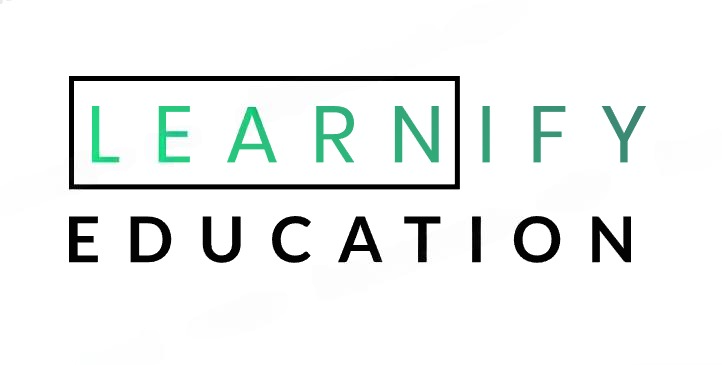How to Start a Career in Artificial Intelligence & Machine Learning
Compare India’s leading universities on a single platform within two minutes. Online MBA for job professionals 100 + Universities 30X comparison factors Free expert consultation Quick Loan facility Post Admission Support Learnify Exclusive Community Job + Internship Portal No-Cost EMI From ₹5100/- Subsidy Available upto ₹20,000/- Artificial Intelligence (AI) and Machine Learning (ML) are among the most sought-after career fields today. From healthcare and finance to e-commerce and technology, the demand for AI and ML professionals is increasing rapidly. If you are looking to start a career in AI and ML, this guide will help you. What is Artificial Intelligence & Machine Learning? Artificial Intelligence is a technology that enables machines to mimic human intelligence, allowing them to perform tasks such as decision-making and problem-solving. Machine Learning is a subset of AI that enables machines to learn from data and make predictions. Applications of AI & ML Healthcare: Disease diagnosis, robotic surgeries, drug discovery Finance: Fraud detection, automated trading, risk analysis E-commerce: Recommendation engines, chatbots, personalized marketing Education: Smart tutors, automated grading, adaptive learning Autonomous Vehicles: Self-driving cars, traffic predictions, smart transportation If you want to build a career in AI and ML, understanding these applications is crucial. Steps to Start a Career in AI & ML 1. Build a Strong Foundation To start a career in AI and ML, you need a solid foundation in the following subjects: Mathematics & Statistics: Linear Algebra, Probability, Statistics Programming: Python, R, Java, C++ (Python is the most popular language for AI and ML) Data Structures & Algorithms: Sorting, Searching, Graph Algorithms Machine Learning Concepts: Supervised & Unsupervised Learning, Neural Networks, Deep Learning Online platforms like Coursera, Udacity, edX, and Udemy offer courses in AI and ML. 2. Gain Hands-on Experience with Real-World Projects Learning AI and ML is not just about theory; practical experience is essential. You can practice on platforms like Kaggle and Google Colab. Some beginner-friendly projects include: Spam Email Classifier using ML Face Recognition System Stock Price Prediction using Deep Learning Chatbot Development using NLP Sentiment Analysis for Social Media Handwritten Digit Recognition 3. Learn AI & ML Tools and Frameworks Familiarity with the following tools and frameworks is essential: TensorFlow & PyTorch (for Deep Learning) Scikit-learn (for basic Machine Learning algorithms) Pandas & NumPy (for Data Processing) Matplotlib & Seaborn (for Data Visualization) OpenCV (for Computer Vision) NLTK & SpaCy (for Natural Language Processing) 4. Earn AI & ML Certifications Certifications add credibility to your resume and improve job opportunities. Some recommended certifications include: Google Professional Machine Learning Engineer IBM AI Engineering Professional Certificate Microsoft Certified: Azure AI Engineer Associate Stanford University’s Machine Learning Course by Andrew Ng AWS Certified Machine Learning Specialty 5. Gain Industry Experience through Internships & Freelancing Internships and real-world projects enhance your skills. Platforms like Fiverr, Upwork, and Freelancer offer freelancing opportunities in AI and ML. Additionally, applying for internships in reputed companies like Google, Microsoft, and Amazon can give you practical exposure. 6. Contribute to Open Source and AI Communities Contributing to open-source projects on GitHub and engaging in AI communities like TensorFlow Hub, Hugging Face, and AI Stack Exchange can help build your network and credibility in the field. Career Opportunities in AI & ML 1. AI Specialist / Developer AI specialists work on designing AI systems and software applications using deep learning models and neural networks. 2. Machine Learning Engineer ML engineers focus on training and optimizing data-driven models. Responsibilities include data preprocessing, model deployment, and optimization. 3. Data Scientist Data scientists analyze data and leverage AI & ML techniques to solve business problems. They use Python, SQL, and data visualization tools. 4. AI/ML Research Scientist Research scientists develop advanced ML algorithms for new AI innovations. 5. Robotics Engineer Robotics engineers work on AI-driven automation and intelligent robotics development. 6. Computer Vision Engineer A computer vision engineer focuses on image and video processing technologies, including facial recognition, object detection, and autonomous navigation. 7. NLP Engineer An NLP engineer works with language models and text-processing algorithms, developing applications such as chatbots, voice assistants, and translation systems. AI & ML Industry Trends and Future Scope The future of AI and ML looks promising, with an increasing demand for professionals. Some key industry trends include: Automated Machine Learning (AutoML): Making ML model development easier. AI-powered Cybersecurity: Enhancing fraud detection and security measures. Natural Language Processing (NLP): Improving AI-driven chatbots and voice assistants. AI in Healthcare: Revolutionizing disease detection, drug discovery, and robotic surgeries. Edge AI: Running AI models on local devices without relying on cloud computing. Explainable AI (XAI): Improving AI transparency and trustworthiness. Generative AI: AI-driven content generation for images, videos, and text. Conclusion If you want to start a career in AI and ML, follow these steps: Learn Mathematics, Programming, and Core ML Concepts. Work on Real-World Projects and practice on Kaggle. Earn Relevant Certifications and gain industry experience. Stay updated with the latest AI & ML Trends. Build a Portfolio of AI Projects to showcase your skills. Contribute to Open-Source AI Communities and grow your network. By following this roadmap, you can become a successful AI/ML professional and secure a job in a top AI-driven company.














